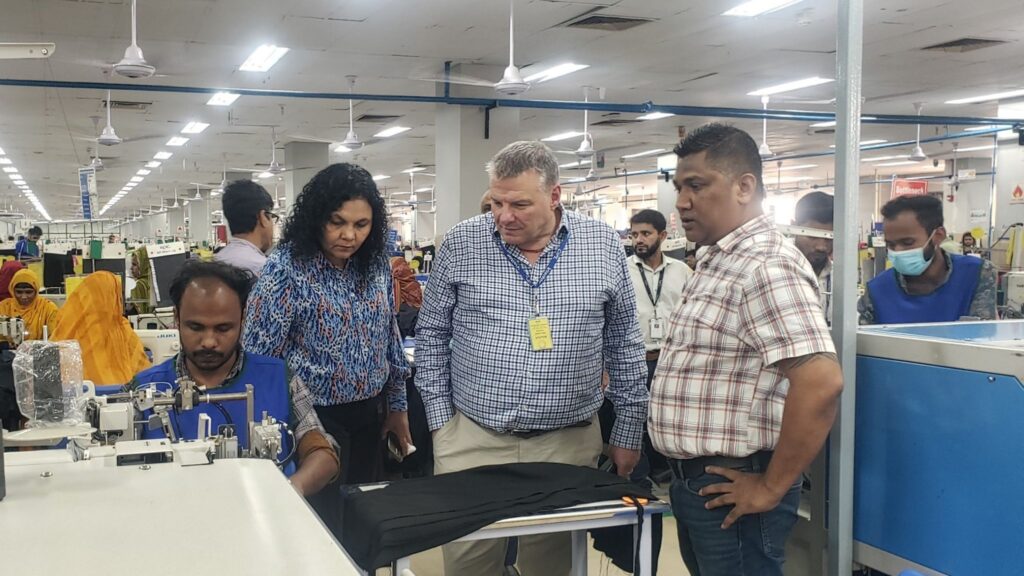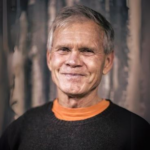
Cascale, Worldly Host Climate Event, Mark Decarbonization Steps
The organizations co-hosted a New York Climate Week Event with many fantastic speakers and insights. Read more here!
Andrew Martin, EVP at Cascale, traces his visit to Hong Kong-based manufacturer Epic Group’s CIPL facility in Bangladesh showcasing sustainable innovation and a responsible future ahead.


It’s one thing for a company to talk about their sustainability commitments, and it’s another thing entirely to show them off – and invite someone into their production lines for a closer look.
In Bangladesh earlier this year, I had the privilege of touring Cascale member Epic Group’s CIPL facility. Like Cascale, Hong Kong-based manufacturer Epic Group is committed to improving the way they do things. This commitment, or “Relentless Pursuit of Better” as they’ve called it, equates to a sizable impact across their 200 production lines and 9 facilities (to the tune of 120 million garments per year)! Since 2005, they have continued to push their standards in delivering value-added, world-class manufacturing in apparel that favors quality, value, and sustainable innovation.
What is Epic Group’s innovation exactly? During my tour, I saw how continued investment in new factories and technology pays for itself in the long haul. I witnessed the first-hand investments made in automation, RFID-based production tracking, worker performance systems, and upgraded laundry machines. I also observed their state-of-the-art Effluent Treatment Plant, which meets Zero Discharge of Hazardous Chemicals (ZDHC) aspirational discharge standards and reuses 50 percent of treated effluent back into operations. This is essential given the uphill battle of wages, energy, and data costs. More important than ever is standardization, accelerating away from proprietary requests and moving towards convergence.
So what does that mean at an assessment level? I had really great robust conversations with Vidhura Ralapanawe, (Epic Group’s executive vice president, Sustainability & Innovation and Cascale Board Director) and the team, and we all agreed that assessments need to adapt to the times, meaning satisfying standardized industry-wide accepted reporting requirements while adapting to current and upcoming regulations. However, beyond this it was clear that further expectations should be razor focused only on setting up factories for improvements over time, while avoiding the addition of unnecessary burdens sometimes often imposed by individual companies that don’t add value to performance improvement. After all, this is at the very core of Cascale’s origin story.
We had productive discussions on Epic Group’s ongoing sustainability journey and future goals to halve their water and carbon footprints by 2030.
Because let’s not forget – this year is a pivotal year. We can’t tolerate climate commitments falling by the wayside. Scientists warned of surpassing critical limits, and February marked a year-long trend of global temperatures above the 1.5-degrees Celsius according to the European Union’s Copernicus Climate Change Service. It’s why the efforts of global manufacturers like Epic Group matter and must be complemented by collective efforts across people and planet.
Though I’ve seen many factories in my 30-year career in global textile supply chains – from development of Olympic and World Cup-winning performance fabrics to operational improvements in factories – this tour left me with deeper inspiration.
I’m excited about how Cascale and Epic Group can continue to collaborate to raise sustainability standards across the apparel industry through collective action with brands, manufacturers, and other stakeholders – including elected officials. With the European Union’s recent approval of the Corporate Sustainability Due Diligence Directive (CS3D), which is a positive step forward, I am motivated to see how responsibility becomes the norm.
Cascale and members centered conversations on capital and collective action.

Cascale’s co-founder reflects on the organization’s origins and roadmap for future success from the Annual Meeting in Munich.

Lee Green, Cacsale’s senior director of marketing and communications, reflects on the Cascale Annual Meeting 2024 and shares his key takeaways.
